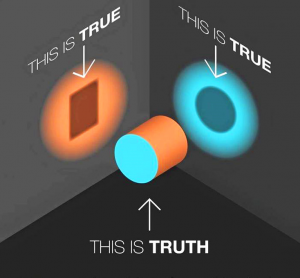Creating Partnerships can be a valuable asset for a downtown. Partnerships can be mutually beneficial and lead to great things for the end user (in our case visitors). Every downtown likely has a partnership with their city. The downtown organization keeps things vibrant, the city provides infrastructure. Beyond that, there is usually a clear delineation of who is responsible for what. Who removes the garbage? Who plants the planters? Who cleans the streets, enforces parking, or fixes street lamps? Each of those answers can be different in your community, but that partnership probably exists.
Partnerships are especially important in organizations where you may not have the budget or resources to provide all the services you want to offer. There are countless examples from across the country on successful partnerships that benefit downtowns. So what makes a good partnership? All you have to do is look at the various ways organizations make things work to see that there is no magic formula that says it has to be a certain way. However, there are a few things you should keep in mind when developing partnerships.
Why are you interested in partnering? Are you creating a partnership because you don’t have the budget to provide this product or service on your own? Are you looking to draw on someone else’s expertise? Why are you not providing this product or service yourself? Understanding, and sharing, your motives is important to creating a successful partnership.
Often in partnerships it is easy to undervalue what you have to offer. If you’re thinking about a partnership you obviously place a value on what the other party brings to the table. If you are a smaller organization you may need a larger budget, more infrastructure or something else that a large organization can offer. If you are a large organization you may not have the volunteer base of a smaller organization or the personal relationships necessary to accomplish a project. Each of us, and each organization has something to offer a partnership. Remembering what that is and that the person across from you places a value on that is important.
Rarely is there a situation where a partnership is formed and both parties get everything they want and don’t give up anything they don’t want to. More likely compromise is necessary for any good partnership. Compromising will lead to strong partnership that is fair for everyone.
This may seem like a waste of time or an unnecessary step to many in the non-profit world. It isn’t a matter of trust, and it isn’t a wasted step. Even for small projects, having a written agreement can be a valuable tool. It lets everyone know what is expected of them before the project ever starts. Who is responsible for what, important deadlines and other key things should be written down so that there isn’t confusion later. Often times partnerships fall apart because of things that could have been avoided such as unrealistic expectations or assumptions that the other would do something. Taking time to create the agreement before you start will manage those expectations and help prevent headache.
It may seem cliche to say that communication is a key, because everyone talks about it being critical to success. The reason many of them talk about it as a key to success is because people often don’t communicate as well as they think they do. Sometimes the lack of communication can stem from pride or embarrassment, not wanting to tell their partner something that may reflect poorly on them. Sometimes this communication lapse is because they only view things from their perspective. People often get stuck in their view. That view may be correct, but it may not be the entire picture, similar to this image:

If you communicate clearly, keep an open mind and are willing to listen to your partner will avoid many of the communication pitfalls many fall into.
